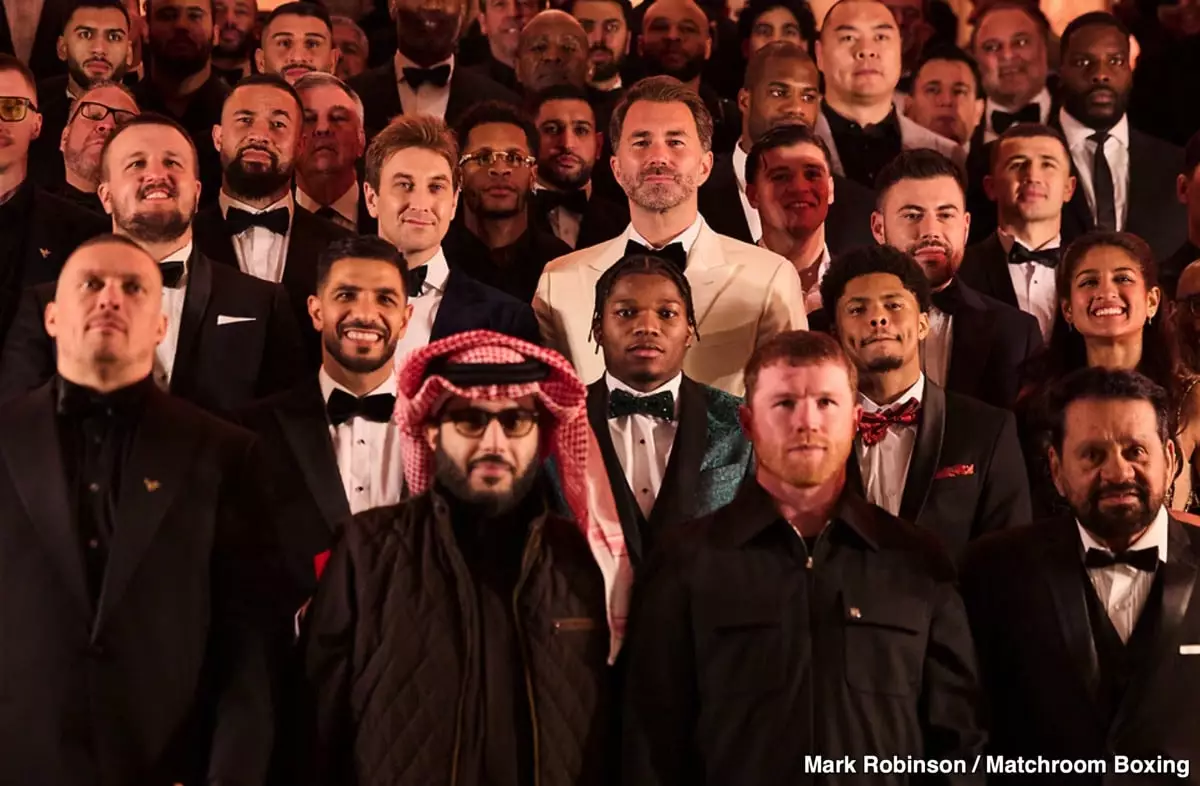In a recent outburst that stirred the boxing community, Gervonta Davis expressed his unease about the growing influence of controversial figures in the sport. He particularly focused on a photo featuring various fighters posing with Turki Alalshikh, a prominent figure in boxing promotion, describing the atmosphere as reminiscent of “Devil s**t.” This comment encapsulates a broader worry shared among fighters and fans alike regarding the motives and integrity of the sport in the face of lucrative foreign investments.
Davis’s description of the fighters looking like “brain-washed disciples” sparked a flurry of reactions on social media platforms, including X (formerly Twitter). Many echoed his sentiments, pointing out that the ominous ambiance of the photo and the formal attire—specifically the bow ties—contributed to a cult-like vibe. Fans eagerly drew comparisons to historical cults, joking about the necessity of black pajama bottoms and Kool-Aid containers, which served to amplify the tension surrounding the situation.
The eerie portrayal was further fueled by the mixed reviews on recent fights organized under Alalshikh’s watch in Riyadh. Fighters like Teofimo Lopez, often described as having an enigmatic appearance, only added intrigue to the discussion. The confluence of these elements underlines a stark realization that the glitz and glamour of professional boxing may come at a significant moral cost.
Davis’s reluctance to fight in Riyadh stems from concerns about what he perceives as questionable and controversial judging during recent matches. He highlighted specific fights—like Carlos Adames vs. Hamzah Sheeraz and Artur Beterbiev vs. Dmitry Bivol—that left many fans and critics alike scratching their heads. Such decisions have fostered mistrust in the legitimacy of match officiating in foreign territories, with Davis openly questioning if the outcome is predetermined by those with vested interests.
He articulated a sense of wariness, suggesting that the capital’s boxing atmosphere has shifted significantly. “Everything is different,” Davis stated, bringing to light the idea that lucrative deals overshadow the core principles of sportsmanship.
Davis’s outspoken criticism may resonate more broadly in the boxing community as fighters grapple with shifting paradigms shaped by financial incentives. The fear of losing their reputation—or worse, their integrity—casts a long shadow over athletes who must weigh the benefits of competing in high-stakes environments against the potential for exploitation.
His comments also highlight a growing divide within the sport, where the glamorous allure of wealth and fame can trap athletes into undesirable situations. The “Devil s**t” analogy serves as a metaphor for the moral crossroads many fighters are facing: do they pursue financial gain at the cost of their authenticity and well-being, or do they hold out for a more legitimate path?
In a sport deeply tied to tradition and respect, Gervonta Davis’s apprehensions signal a critical moment for boxing. As fighters grapple with the complexities of modern promotion tactics and ethical concerns, it becomes imperative for the community to re-evaluate what it means to compete in the ring. The spotlight is now on the sporting authorities, promoters, and fighters themselves to ensure that the beautiful yet brutal world of boxing doesn’t lose its soul in a quest for wealth and recognition.

